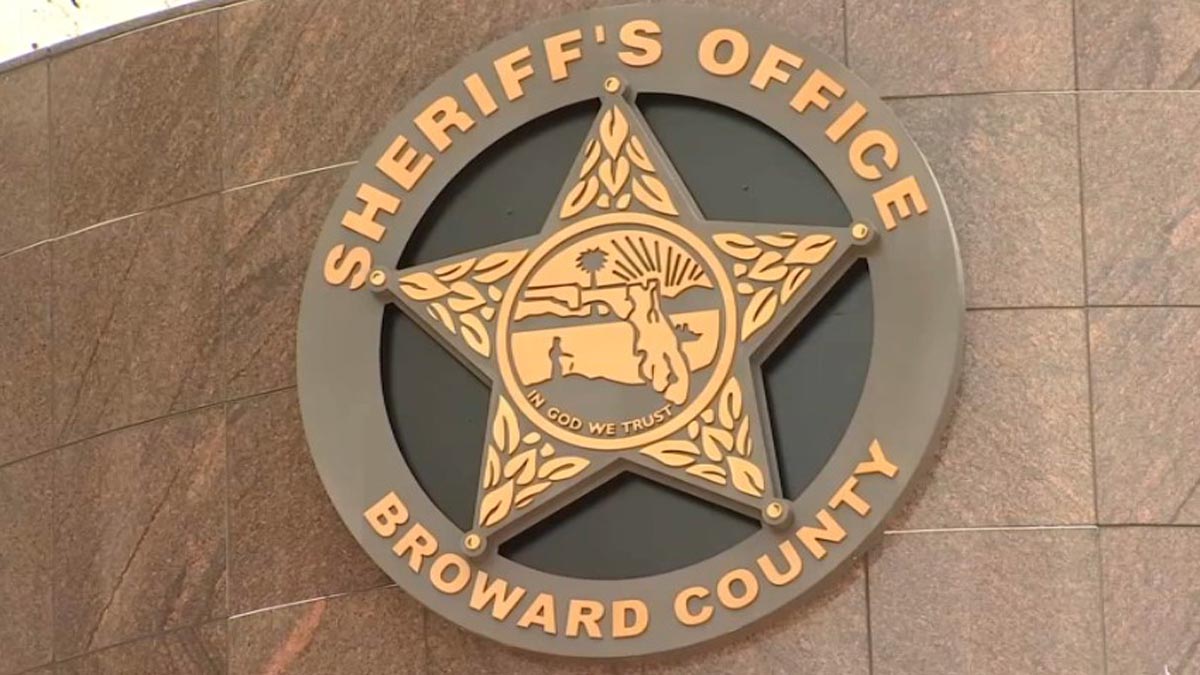The $770 million plan known as “Baylink” faces another hurdle - this one of transparency and public trust - after a county ethics report, stern words from the county’s inspector general, and a call to scrap the plan by the Commissioner representing Miami Beach.
In May, the Board approved Mayor Carlos Gimenez’s administration to review the plan and begin low-level negotiations with a business group based on a proposal by the Miami Beach Monorail Consortium, a group led by infrastructure developer Meridiam, an Asian casino-entertainment developer Genting Group, and Aqualand Development. Genting and Aqualand are minority partners.
Genting Group owns the former-Miami Herald location along Biscayne Bay in the hopes to develop the land and have it be the launching station for the Baylink transit project.
In 2018, Mayor Gimenez’s administration and the Director of the Economic Development and International Trade Department, Manny Gonzalez, organized a trade mission to Asia. Gimenez said Genting Group was interested in investing in the county and they “went there to listen.”
The Genting Group gave the county an “unsolicited bid” for the project in 2019.
The Miami-Dade County Commission on Ethics and Public Trust investigated for two years and found no laws were broken and recommended no enforcement action. Below are some takeaways and reactions from their report released on May 22.
Burner Phones wiped
Local
The FBI met with the county delegation before their trip to Asia and recommended the use of temporary or “burner” phones that could be destroyed upon return. The FBI had concerns about the Chinese government surveilling the county delegation while they were in Asia. It was the first time the County used “burner” phones.
Ethics investigators looked into whether the county took appropriate measures storing public records while using the burner phones and whether a technician, Jose Marticorena, misrepresented a material fact when saying that OEDIT Director Manny Gonzalez’s burner phone had been wiped. The Miami-Dade County Bill of Rights protects many public records and allows people to see them at reasonable times and places.
When a records request from the Miami Herald came in for information on Gonzalez’s phone, according to the report, Marticorena told the Mayor’s Communications Office the phone had been wiped.
Marticorena told investigators he met with Manuel Blanco, a county official who retrieved the burner phone from Gonzalez. Blanco disputes that and told investigators that he sent the phone by courier to IT.
Gonzalez told investigators he didn’t wipe the phone.
Marticorena did not receive the phone until April 13 after he told the Mayor’s Communications office the phone had been wiped. The day before the had a conversation with a reporter from the Miami Herald about the phone being wiped.
Phone records subpoenaed from AT&T show the phone was shut off on April 10 and then briefly turned on again on April 13.
“The greater weight of the evidence suggests that Mr. Marticorena communicated at best inaccurate and at worst, false information to the Mayor’s Office,” investigators wrote.
County Mayor Gimenez has already vowed to no longer use burner phones for county work saying, “We made the changes that they recommended way before they recommended them.”
NBC 6 reached out for a comment from Marticorena but have not yet heard back.
Schedules not forthcoming
Along with the phone records, news outlets including the Miami Herald requested itineraries and schedules of the event. The news outlets were not originally supplied with the schedules detailing the Hong Kong Leg of the trip, which included meeting with Genting Group Chairman on a cruise ship.
Investigators wanted to determine if this violated the county Citizens’ Bill of Rights.
Ralph Garcia-Toledo and Jesse Manzano-Plaza from Aqualand Development were key figures in planning the meeting. Aqualand Development is now a minority partner in the project.
The meeting on the ship between county and Genting officials was not promoted to the business community-at-large. The final agenda did include the actual meetings with Genting.
During the planning before the trip, OEDIT Chief Manny Gonzales sent the itinerary to a private email account and removed the reference to Genting in drafts, according to investigators.
County officials told investigators all this was due to a hastily planned trip that changed often. The reporters simply received the wrong draft and should have requested “any and all” documents including drafts, county staff told ethics investigators.
Lobby-campaign connections
Prominent lobbyists and political campaign professionals are involved with the project.
Ralph Garcia-Toledo shepherded the project for Genting, according to the ethics report. Aqualand is a company formed by Garcia-Toledo. Garcia-Toledo was also the finance chairman for the Gimenez re-election campaign in 2016.
“Let me make it perfectly clear, the Mayor WILL make himself available” for the Hong Kong meeting wrote Garcia-Toledo in an email, according to the ethics report
Manzano-Plaza was Gimenez’s re-election campaign manager. He only became involved with Aqualand in 2019, after the trade mission.
Manny Gonzalez was listed as the registered agent for Aqualand Development.
Investigators wrote the lobby team had “close personal ties to Mr. Gonzalez” while Gonzalez was the Chief of OEDIT.
No Public Funds?
County communication staff insisted “no county funds” were used in this trip at the time. Instead, “user fees” from county departments were transferred to the county’s nonprofit Trade Center of the Americas. $10,000 each from the county’s Aviation, Port, and Waters and Sewer departments paid for the trip. Those departments do not use county general fund dollars appropriated to the agencies. Instead, the departments raise the money themselves through “user fees".
Investigator Karl Ross wrote, “user fees paid to County enterprise entities are County funds, and the difference between user fee source funds and tax source funds may be a semantic difference without a distinction, however it would likely not violate the Truth in Government ordinance.”
Responses
“Obviously, mistakes were made in handling the burner phones, but that was corrected for future trips and the only influence I received on the Asia trip was the ability to see first-hand the problems with quality and transparency that would result when dealing with Chinese-made products,” wrote Mayor Gimenez in a statement.
“After a two-year, two-month investigation that cost county taxpayers thousands of dollars, the Ethics Commission (COE) on May 22 clearly established that no representative of the private or public sector who participated in the mission to Japan and China violated the laws of Miami-Dade County. The COE memo simply confirms what the media had already reported two years ago. The timing of this memo’s release raises serious questions and suspicions about its ultimate intent,” wrote a spokeswoman for Aqualand to NBC 6.
The Genting Group and Meridiam have not yet responded to a request for comment.
No enforcement action
“No ethics enforcement action will issue against any persons arising out of the investigation,” wrote Executive Director of the Commission on Ethics and Public Trust Jose Arrojo.
In short, investigators wrote they couldn’t determine definitively who wiped the burner phones or when.
On the issues of leaving off the Genting Group meeting from the schedules delivered to the media, they wrote there is “insufficient evidence to satisfy the required “clear and convincing” standard of proof to show that the omission of that information was done knowingly.”
Higgins Memo and Inspector General concerns
The Baylink project now could be in jeopardy with Commissioner Eileen Higgins plan to bring up a motion to take a second look at the plan.
“It will forever be associated with a meeting that occurred, you know, on a cloudy day in China,” said Commissioner Eileen Higgins, whose district includes areas where the monorail project will be built. She wants the County Commission to take a second look at the entire plan and no longer supports the idea. For her, there are just too many transparency issues connected to the deal after the report.
“I cannot ignore this lack of transparency even if it means the residents and workers of Miami-Dade County must wait even longer for Baylink,” Higgins wrote.
The Inspector-General responded to a request by Higgins to give input on a path forward.
While the investigation “concluded that the evidence its investigators gathered was insufficient to level charges of ethics violations, the findings of this report create serious concern
regarding the integrity of this corridor project,” wrote Miami-Dade Inspector General Marty Cagle. Higgins’s motion to reconsider “certainly deserves support,” Cagle wrote.
However, Cagle writes whether to continue or scrap the plan is up to the Miami-Dade Board of County Commissioners.
Details on the project
The monorail would span 3.45 miles on the Southside of MacArthur Causeway. It would consist of two trains, each holding 300 people running 50 mph. That speed is enough for twelve trips per hour. If approved the Monorail Consortium is expected to complete its work any summer 2025.
Miami-Dade County has tried for decades to build a “Baylink” connecting Miami with Miami-Beach.



